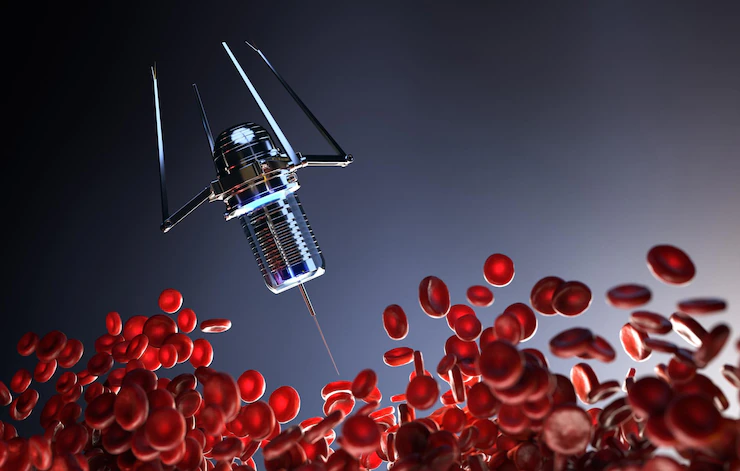Bone marrow transplant (BMT) is a specialized medical procedure that offers hope to patients suffering from various hematological disorders, including leukemia, lymphoma, aplastic anemia, and certain genetic diseases. In recent years, India has emerged as a popular destination for bone marrow transplants, attracting patients from around the world due to its state-of-the-art medical facilities, skilled healthcare professionals, and cost-effective treatments. This article explores the benefits, procedure, and advancements in bone marrow transplant in India.
The Significance of Bone Marrow Transplant
Bone marrow is a spongy tissue located within the bones, responsible for producing vital blood cells, including red blood cells, white blood cells, and platelets. Patients with conditions such as blood cancers or genetic disorders often require a bone marrow transplant to replace damaged or diseased marrow with healthy stem cells, enabling the production of healthy blood cells.
Benefits of Bone Marrow Transplant in India
- Advanced Medical Infrastructure: India boasts world-class medical infrastructure and renowned hospitals equipped with cutting-edge technology and facilities specifically dedicated to bone marrow transplant procedures. Several hospitals in major cities such as Delhi, Mumbai, Chennai, and Bangalore have specialized transplant units with experienced medical professionals.
- Skilled Healthcare Professionals: India is home to highly skilled and internationally trained doctors, hematologists, and transplant specialists who possess expertise in performing bone marrow transplants. These professionals have extensive experience and are known for their success rates and compassionate patient care.
- Cost-Effective Treatment: One of the significant advantages of choosing India for a bone marrow transplant is the cost-effectiveness of the procedure. Compared to other countries, the bone marrow transplant cost in India is relatively lower, making it an affordable option for patients seeking this life-saving treatment.
Procedure for Bone Marrow Transplant
- Evaluation and Preparation: Before undergoing a bone marrow transplant, a thorough evaluation of the patient’s medical history, overall health, and specific condition is conducted. Tests are performed to assess the compatibility of the donor (in the case of allogeneic transplant) and to ensure the patient is fit to undergo the procedure.
- Conditioning Regimen: The patient receives high-dose chemotherapy or radiation therapy to eliminate diseased cells and suppress the immune system. This step prepares the body to receive the transplanted stem cells.
- Transplantation: The patient receives healthy stem cells via infusion, which can be sourced from their own body (autologous transplant) or a matching donor (allogeneic transplant). The transplanted stem cells migrate to the bone marrow and start producing healthy blood cells.
- Post-Transplant Care: The patient is closely monitored in a specialized transplant unit, with regular blood tests, medications, and supportive care. This phase is critical to prevent complications and ensure the success of the transplant.
Advancements in Bone Marrow Transplants in India
India has witnessed significant advancements in the field of bone marrow transplants, including:
- Haploidentical Transplants: Haploidentical transplants allow for the use of half-matched donors, typically a family member, expanding the availability of potential donors for patients who do not have a fully matched sibling or unrelated donor.
- Cord Blood Transplants: India has also made significant progress in cord blood transplantation, which utilizes stem cells collected from umbilical cord blood. This method has expanded the availability of stem cell sources, especially for patients who do not have a matching donor.
- Improved Outcomes: The expertise of Indian medical professionals, advancements in surgical techniques, and comprehensive post-transplant care have contributed to improved survival rates and outcomes for patients undergoing bone marrow transplants.
Affordability: A Key Advantage
One of the standout advantages of choosing India for a BMT is the affordability factor. The cost of medical procedures, including bone marrow transplants, in India is significantly lower compared to many other countries. This makes it an attractive option for patients who may be concerned about the financial burden associated with such complex treatments. The cost-effectiveness of bone marrow transplants in India allows more individuals to access life-saving procedures, regardless of their financial constraints, thereby offering hope to patients who would otherwise face limited treatment options.
Conclusion
Bone marrow transplant in India has emerged as a beacon of hope for patients battling hematological disorders and genetic diseases. With advanced medical infrastructure, skilled healthcare professionals, cost-effective treatments, and continuous advancements in transplantation techniques, India has become a preferred destination for patients seeking bone marrow transplants.
The expertise, compassion, and dedication of the medical fraternity in India, combined with affordable treatment options, offer patients a ray of hope and a chance at a new lease on life. As India continues to make progress in the field of bone marrow transplants, it stands as a testament to the power of medical innovation and the unwavering commitment to improving patient outcomes and quality of life.
Read more: Exercising With Knee Pain





